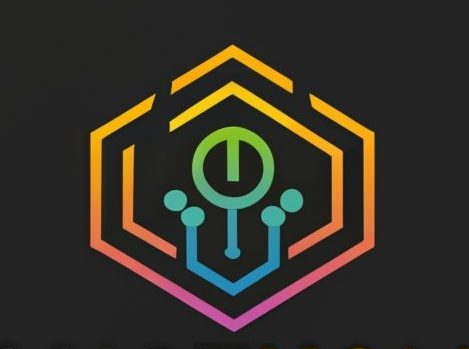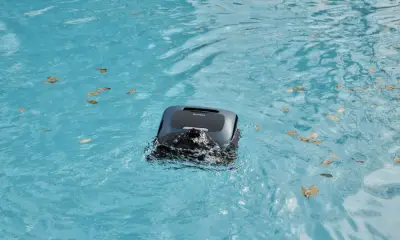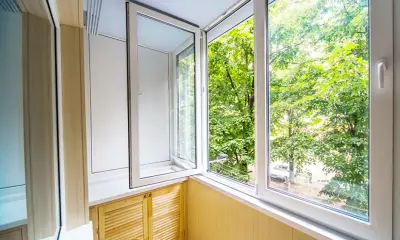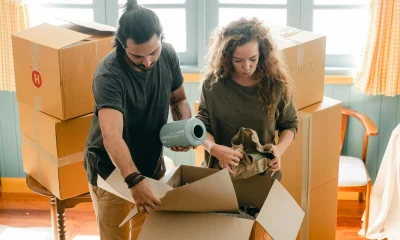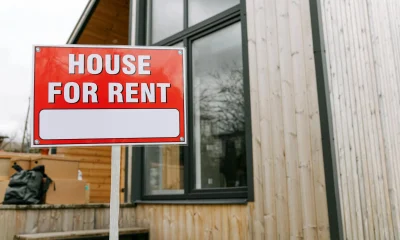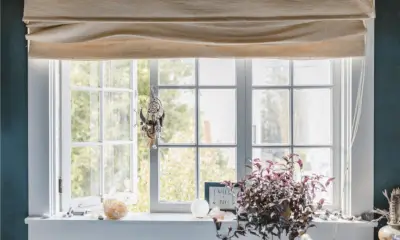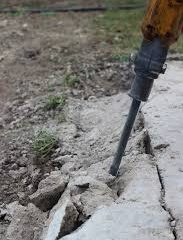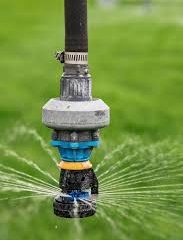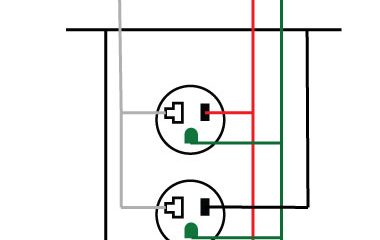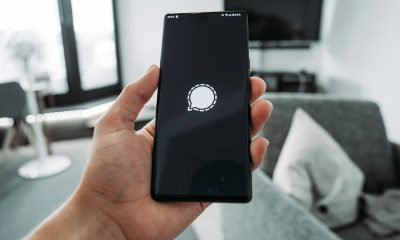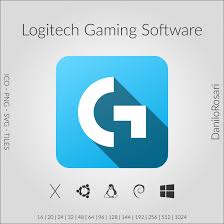Gadgets
Is It safe to use smart locks?
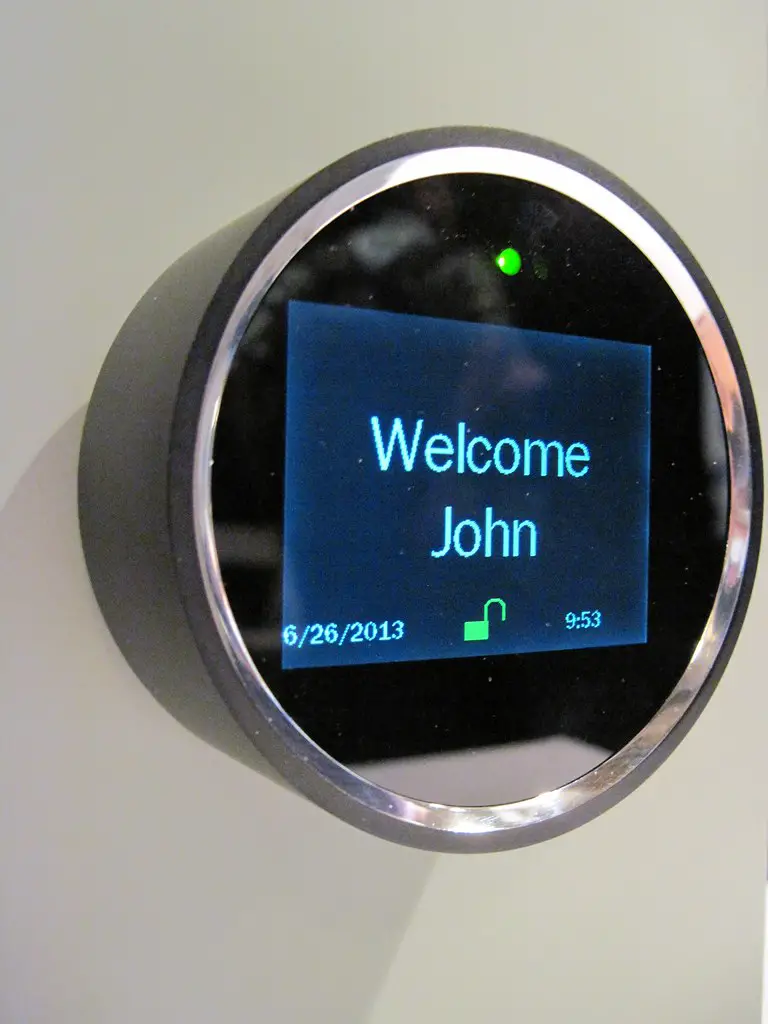
You’ve likely heard of Smart door locks because of the revolutionary capabilities they provide such as automatic unlocking and locking, access sharing, remote access, and smart home integrations.
Maybe you have seen a friend’s smart speaker or passcode-locked door being opened with a single voice command.
After that, concerns surfaced, such as whether or not a smart lock might be compromised. Today we will be discussing Smart locks and some FAQs on google.
You’re debating whether or not your house is adequately protected if the door can be opened with a smartphone app.
Is it safe to use smart locks?
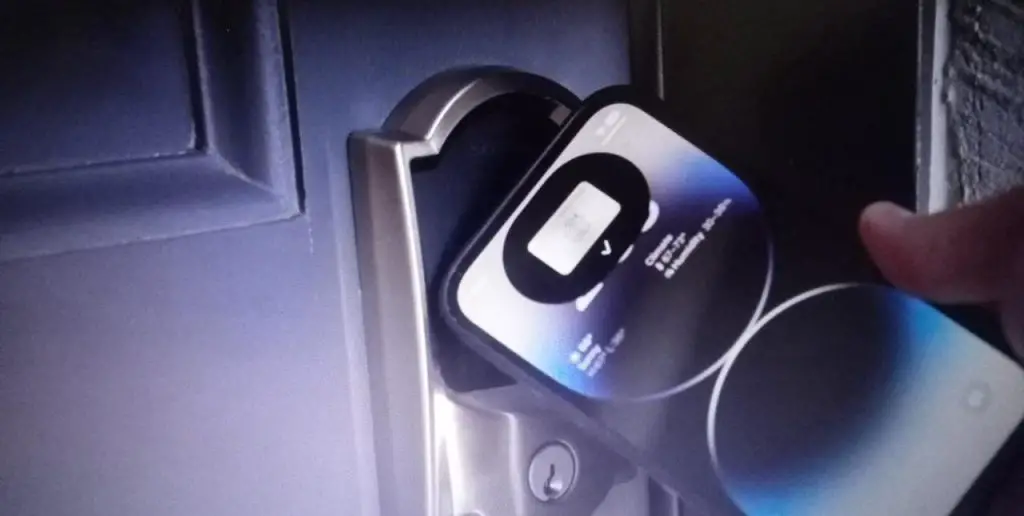
Your concerns are valid, and we share them. Consequently, we began working on the device’s security right away and didn’t rest until our digital and mechanical security specialists were happy with the results.
We’re all putting our smart locks through months of rigorous testing before releasing them to the public.
Our solutions have been developed and tested for many years, and have received the stamp of approval from independent security agencies.
More than 10,000 individuals use Tedee smart locks every day, and this number rises to over 5 million annually.
We all utilize Tedee now in our high-tech residences. It’s so common that many of us have put it in our parents’ houses.
Something must be excellent if you’re going to promote it to your mum.
Do you agree that it’s a lot to take in? As opposed to a “door lock with a remote,” most Smart locks provide a lot more conveniences and security.
They bridge the gap between physical and digital security, both of which need specific approaches.
Here, we’ll break down these technologies into their component elements and examine them in detail. We’ll get started with the nuts and bolts of installing a smart lock on your front door. The second instalment will focus on cyber safety.
Finally, we’ll give you a rundown of how smart locks function to emphasize the most critical details you need to know.
There will be some jargon to get used to, like “communication protocol” and “asymmetric keys,” but don’t worry.
We believe the use of analogies and visual aids will make the material more accessible.
The intricate intricacies of how each of these technologies interacts with one another are beyond the scope of this article.
With any luck, the information presented here will equip you to make a well-informed decision about whether or not to put your confidence in a Smart lock.
Having one installed on your front door will give you a sense of security that goes beyond just convenience.
Offline mechanics provide physical security.
A smart lock will not compromise the physical integrity of your door in any way.
To operate the cylinder within your door, all you need to do is turn the electric tool, just as you would a real key.
It’s completely hidden from the outside and may be opened with any regular key.
The lip of the main entrance
Before we go into the technical details, let’s examine its mechanical qualities and see whether it’s safe to use even while it’s offline in “flying mode.”
Canister or converter?
If you want to use your smartphone to unlock your door, you’ll need to attach a teed to your conventional lock.
There are a variety of smart locks on the market, and most of them can be set up with either a Special cylinder or an adaptor that works with your existing lock.
If installed properly, they won’t affect how you live your life in the slightest. But how different are these options for home protection?
Can a burglar break a smart lock?
Keep in mind that you now have a smart lock on your door. It is hidden and inaccessible from the outside, making it less likely to be stolen.
Hence, it’s impossible to affect its functioning mechanically. Your home is safer from electrocution because of the space between the lock and the outside door.
Mostly, you can open it from the outside, but there is no way to unlock it from the inside. That happens instantly.
Android App Icon Smartwatch Doorknob Keypad Telephonic Aid The Old Lock and Key Gateway Website
The keys that come with your Tedee cylinder box are very difficult to duplicate or fake.
Key duplication using the code card included in a cylinder is restricted to GERDA and M&C-approved partners only. Key combinations for special cylinders may exceed 100,000.
It implies that your cylinder is constantly at risk of being decoded, drilled, or broken, even though Smart locks do not affect mechanical security.
If you want to keep your lock in the best condition possible, you should use a cylinder of the right length and pair it with an escutcheon.
These standards are essential for any lock and not only Smart lock installations.
Keep in mind that even if your vault or secret archive is equipped with security cameras, a smart lock is still not a good idea for protecting your valuables.
Products and technology are on the market today that are made expressly for such environments.
Your security staff should be consulted on this matter, as there may be regional restrictions or upkeep requirements to consider.
The Risks Associated with Using A Metal Key

The traditional key is a representation of power since it restricts access to only the keeper. Yet, a solid metal object isn’t necessarily the most secure choice.
Do you fully trust everyone who has handled your keys in the past? Has a painting crew, a neighbor who helped you water your plants, a visitor at your short-term rental, or a temporary worker taken them?
Apartment rental? It’s impossible to determine who lived there before you or whether they returned all of the keys.
Could it be that your landlord sometimes stops by even while you’re not there?
Do you feel certain that your lock, keyed door keeps everyone out?
The key may be duplicated, lost, or stolen if it is handled carelessly (which is difficult to prevent) or if it is shared across a large number of people.
When your level of trust drops below 100%, you should be forced to replace the cylinders in your locks.
Concerns regarding the security of “digital keys” are understandable. Your smart lock is more secure than a simple metal doorknob because it uses cutting-edge technology and many layers of protection.
We’ll delve into cyber security and electronic lock protection in the future chapter.
Where the real intelligence lies: in digital security
A conventional lock’s sole line of defense is a metal key. In contrast, each time Tedee is used, an online cloud service performs a series of checks to determine whether or not the user is authorized to do so.
The process is similar to withdrawing cash from an ATM or making a credit card purchase.
What does it imply that cloud-based smart locks function?
The cloud is just another name for the internet. When referring to an online server-based security system, the term “cloud” is often used.
Think of your door lock as if it were an online bank. It employs cutting-edge security technology to verify your identity and access privileges using sophisticated authentication software.
If the request is genuine, the cloud will send a verified signal to your lock. Technology may be made more sophisticated on the cloud than on any individual device.
Cloud-based smart home systems like Google Assistant, Apple HomeKit, Amazon Alexa, Homely, and others may be integrated with the lock because of how it operates. Security measures in the cloud are consistent regardless of the device you use to manage your Tedee.
Can you hack a smart lock?

First, we need a way for your smartphone and smart lock to talk to your other and the cloud wirelessly. A Smart bridge connected to a wall outlet might be part of your setup.
For smart locks, this is the equivalent of a phone, albeit it is permanently installed and uses Wi-Fi rather than cellular data.
Connecting a smart lock to a mobile device.
They seem mundane at first, with obvious points of entry for hackers. None of these ties, however, is a direct relationship.
It works on several messages between two people, not just one. It elevates the passing of information to a level above a simple handshake or salutation.
A communication protocol is a set of predetermined guidelines for how messages should be sent and received. There are several steps involved, yet the whole process is cancelled if even one of them fails.
TLS 1.3, the most recent version, employs a 256-bit security key and is used by Tedee.
They may seem incomprehensible, and in some ways, they are, but you should know that they are a technology used to secure the online banking and payment systems used by the greatest corporations in the world.
You may now purchase this safeguard to ensure the safety of your smart home.
Single-use message security protocol
So, what does this entail? In layman’s terms, this means that the encryption system keeps track of every single message transmitted and received, and will never accept the same message again.
Take the case when a hacker has gained access to the system and is monitoring all communications between devices to steal information.
Imagine the hacker has re-entered message 100 after stealing it. But you’ll need to send the Smart lock message 101.
The hacked copy of the message will no longer be effective, and the hacker’s attempt will fail. There is no way in, and cyberattacks won’t do anything
Differentiated keys
Device-to-device communication is encrypted, making the signals sent unintelligible to outside parties.
But haven’t we all heard about the legendary Enigma and how it was cracked by code-breakers? This kind of stuff no longer exists.
Tedee employs an unbreakable asymmetric 256-bit key encryption system. Break it down for me, please.
Can we trust the cloud?
Begin, Tedee is supported by one of the industry’s top solutions, Microsoft’s Azure Active Directory B2C service. Predica, a Tedee co-founder, provides our Microsoft synchronization.
There are two main reasons why these details matter.
The maximum degree of data protection is available only from external storage, which is out of reach for most small and local businesses.
No Smart home business keeps copies of our systems. One of the world’s most reliable security systems is housing these items.
A hacker would need to get into Microsoft servers to access your account without your username and password.
The anonymized data is used by the cloud service provider’s software. Even Tedee personnel cannot get unauthorized access to those, and there are no physical means to read them and associate them with a specific device.
The server where user accounts and keys are kept is separate.
It means that the database’s keys require personal information even if the information is leaked; without it, the keys are useless.
What Should You Know About the Risks?
Our hardware is security-certified, and we update the Tedee app and firmware hundreds of times a year. One may argue that Smart locks are safer than conventional ones.
Nonetheless, learning more about how things function in practice and exercising caution is vital.
Auto-unlock is ripe for human error.
Automatic unlocking, for all its usefulness, seems like a function prone to mistakes. We were aware of that fact from the outset, so we took measures to ensure our safety.
Tedee remains locked until the button is pressed from the inside, bypassing the need for authenticated “digital keys.”
A multi-step procedure is always necessary for remote unlocking, and it may be initiated by a smartphone, keypad, or the cloud through a Smart bridge that uses Bluetooth technology.
Smart locks are designed such that they cannot be opened without first launching an operation.
The best way to choose a reliable smart lock.
Access to your home is controlled by a smart lock. As such, they need special handling because of their role as a security mechanism.
Their mechanical, physical, and digital components need equal weight in your analysis.
While shopping for Smart door locks, make sure the manufacturer provides detailed evidence of its security attests, and standards established by independent authorities.
You should check the lock cylinder’s international security grade. Local European authorities, such as SKG-IKOB, establish stringent requirements or ratings for door locks.
Choose a reliable vendor to buy a smart lock. Products marketed in countries outside of Europe, for instance, need not conform to the standards of the European Union just because they have the ubiquitous “CE” symbol.
Thus, they have not been evaluated to ensure user safety and conformity with relevant regulations. The Smart lock’s producer’s website should provide a declaration of compliance accessible to the general audience.
Trusting an external, specialist company with years of expertise in cybersecurity is necessary when dealing with digital security, which is not necessarily approved by national authorities.
AV-Test, one of the most prominent, has certified many commercially available smart locks as safe to use. Here you may go through and read all of their reports.
The best practice when shopping for a smart device, such as a smart lock, is to conduct some research, not only on the manufacturer’s website. Find reviews that have been published by bloggers, journalists, or groups that are not affiliated with any major publication.
The maker of the smart lock should always point you to the relevant paperwork or studies. You don’t want to risk your security checking anything that hasn’t been checked by third-party experts.
Can Smart Lock Be Trusted?
Keep in mind that there is no silver bullet for hacker-proof protection.
That’s why Tedee employs a whole stack of security measures, including cryptography, data storage, communication protocols, and access control.
Do you think it is probable that they will all malfunction or be broken into at the same time?
High-quality smart locks combine the latest in digital security with the highest-quality lock hardware for maximum convenience.
While shopping for one, make sure the manufacturer is forthcoming about the specific technology employed for both aspects of your home’s protection.
You can’t put any faith in any of them if they haven’t been properly approved and tested.
Now that you know what features make Smart door locks secure, you can examine how they are implemented in actual use. At each stage of production, safety measures are implemented.
Now that you have more information regarding Smart locks, you can decide for yourself whether or not to put your confidence in them and immediately begin reaping the advantages.
We’d love to hear from you at [email protected] if you have any further questions concerning anything we haven’t covered here.
We will try our best to respond to your concerns and provide new information to this page so that other customers may better consider smartening up their doors.
We are confident in our goods and want to share all the details with you so that you can make an informed choice and experience the same satisfaction we have.
-
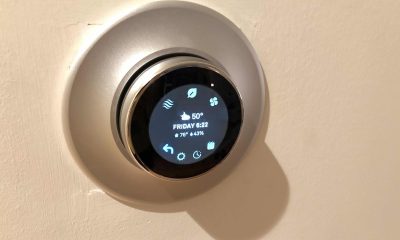
 Gadgets2 years ago
Gadgets2 years agoDoes Nest Thermostats Contain Cameras Or Microphones? Is It Safe For you?
-
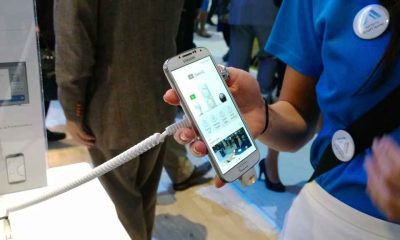
 Guides12 months ago
Guides12 months ago10 Best Apps To Control All Your Smart Home Devices.
-
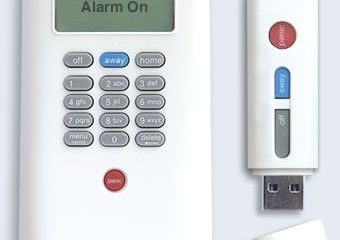
 Gadgets2 years ago
Gadgets2 years agoWhat Is The Purpose Of Red Button On The SimpliSafe Keypad?
-
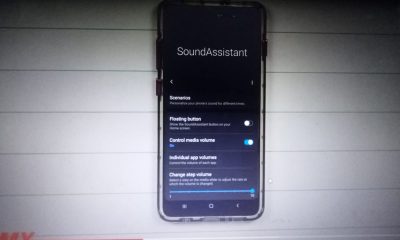
 Gadgets2 years ago
Gadgets2 years agoComplete Guide About Equalizer settings for Samsung-Soundbar
-
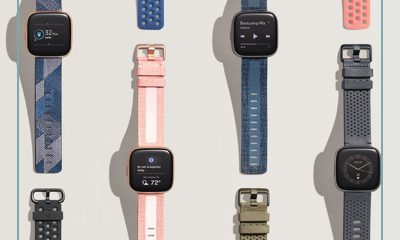
 Gadgets2 years ago
Gadgets2 years agoFitbit Symbols Meaning: What Do The Fitbit Icons Mean?
-
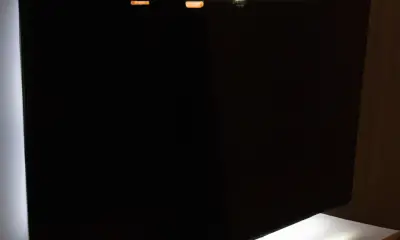
 Solutions2 years ago
Solutions2 years agoWhy is My Samsung TV Picture So Dark? Exploring the Possible Causes
-
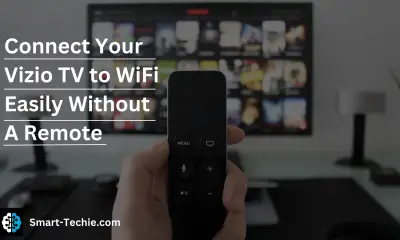
 Solutions2 years ago
Solutions2 years agoHow to Connect Your Vizio TV to WiFi Easily Without a Remote?
-
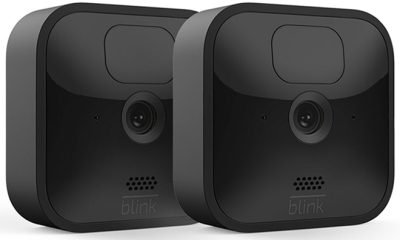
 Accessories2 years ago
Accessories2 years agoBlink Camera’s Temperature Sensor Settings, and More
